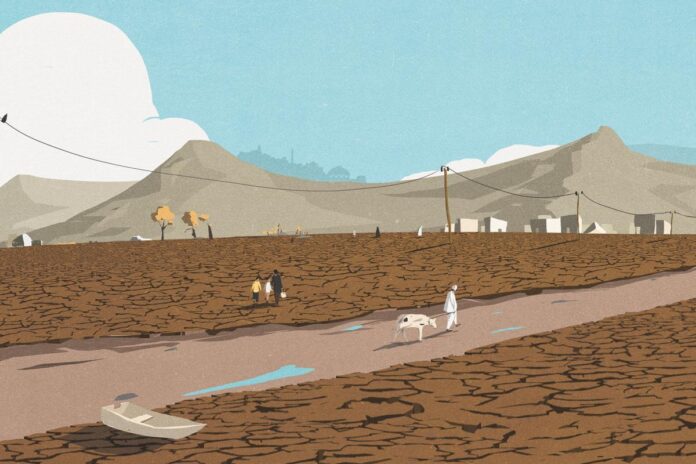Author: Marwa Daoudy
Affiliation: Georgetown University’s Walsh School of Foreign Service, and Seif Ghobash Chair in Arab Studies at the School’s Center for Contemporary Arab Studies
Organization/Publisher: Foreign Affairs
Date/Place: March/April 2022/New York, USA
Type of Literature: Analysis
Word Count: 2828
Link: https://fam.ag/3JdznRF
Keywords: Middle East, Gulf, UN, Conflicts, Climate Change
Brief:
The author refutes an “emerging narrative” in Western media, academia, and policy circles that climate change is driving much of the conflict in the Middle East. The article starts by stressing that climate change will affect the Middle East the most. For instance, floods have ravaged Egypt, Iran, and Tunisia, while wildfires spread across Lebanon, Syria, and Tunisia. Further, Syria and Iraq saw their worst drought in 40 and 70 years respectively. However, those effects are not preordained. Rather, it is governments exploiting peoples’ needs for water and food which has been driving climate change, while dragging their feet as they are asked to adopt green policies. To that effect, Bashar Assad’s “social market policies” made the rural population even poorer. More importantly, various actors in the Syrian civil war such as ISIS have damaged vital facilities and limited water access as a wartime strategy. In Yemen, Riyadh has cut off local populations’ access to clean water and sanitation, risking the spread of diseases, insofar that the Yemen’s 2016 cholera epidemic was called a “man-made crisis” by the Save the Children organization. Such cases call for “paying attention to the intersection between the environment and armed conflict and the ways in which various parties have weaponized the region’s vulnerability to climate-driven scarcity.” The article stresses that actors like the Gulf countries, the UN, and the US can play a role in alleviating this crisis. The US can apply pressure on its partners to apply common standards on this issue, while Gulf countries can do more to help impoverished countries and shift to greener policies. Moreover, organs such as the Geneva Water Hub and UN-Water can play a role. Gulf countries, in particular, stand to gain from adopting such policies, as aggregate demand for oil is bound to rise before it falls. And they can become a supplier of solar energy. On the other hand, the author calls for holding parties responsible for weaponizing water access, such as Saudi Arabia and Israel, as well as those who have harmed the environment in Syria and Yemen in the postwar transition period. The article concludes that “the worst outcomes related to environmental stress are caused not by long-term climate shifts but short-term choices and actions taken by powerful people and institutions, which are far easier to influence.”
By: Hamza Emir, CIGA Research Assistant




